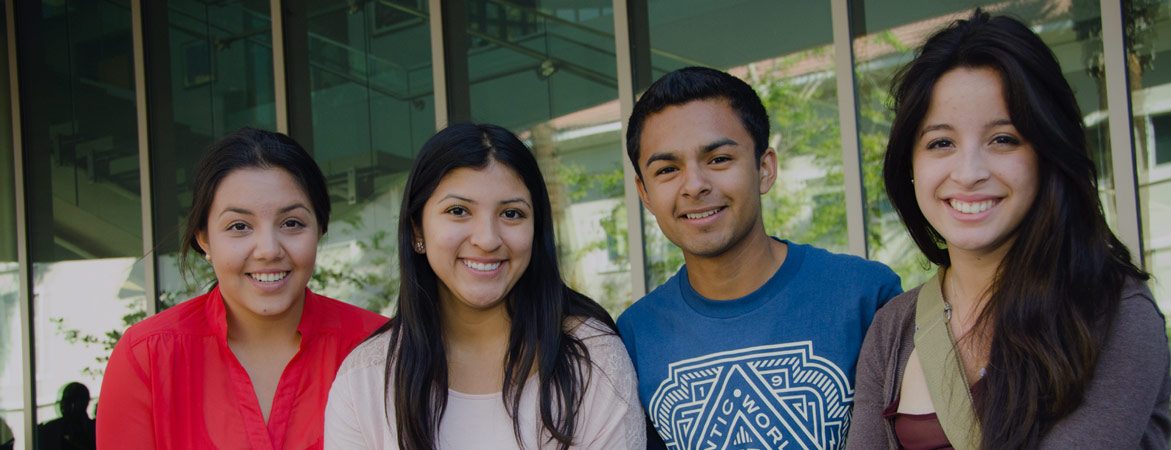The La Verne Experience (LVE) is the University of La Verne’s signature academic initiative. This nationally recognized and unique program is driven by our commitment to educate the whole student, one who will not only succeed academically, but will move on to a productive career as a responsible community member, and thoughtful citizen.
From Start to Finish
Students learn important theoretical concepts in the classroom, from the traditional undergraduate to the doctoral student to the adult learner. An important way to fully grasp an idea is through active forms of learning. The concepts and methods taught in the classroom are applied in actual settings in the field, adding depth the each student’s experience and development. The La Verne Experience provides the opportunity for students on all campuses, in all programs to, participate in bringing theory to life in a practical setting.
FLEX
The First-Year La Verne Experience—FLEX, for short—introduces The La Verne Experience to the traditional undergraduate. FLEX is the first-year signature program, designed for first-year, first-semester students.
SoLVE
The Sophomore La Verne Experience—SoLVE, for short—carries The La Verne Experience into the sophomore year with a series of courses that increase student success in and out of the classroom. With the career aspect of SoLVE in mind, professors help students make long-term plans, even projecting as far as 20 years into the future.
“SoLVE is a far-reaching program that not only encompasses La Verne’s core values and provides the skills needed to succeed in a liberal arts college, but it also encourages students to begin defining their role in solving local, national and global problems,” says Dr. Kat Weaver, Director of the La Verne Experience.
Integrative Learning and Reflection
Tying together curricular and non-curricular lessons for students in a holistic manner
Integrating information across disciplines provides students with valuable perspectives on how to view and resolve challenges in different ways. Students enhance their critical thinking skills as they solve problems and explore issues. Reflection is an important part of this practice. Students think reflectively and, as a result, write to clarify understanding. The process of thinking and writing reflectively helps a student lay philosophical foundations for his/her university career, and, ultimately, a profession. These reflective practices support the student’s development in learning, living, and leadership. These are the moments when learning begins to transform us. Moments when learning becomes personal, real, and lasting. these moments inspire us to learn more, dig deeper. Whether on the La Verne Campus, at the Law School, or in Bakersfield, La Verne students integrate learning, reflect on practice, and grow, both academically and personally.
| Honors 370 | The Honors Program offers a challenging intellectual experience that complements any major at the University. Open to students with proven academic success in high school, the rigorous curriculum is taught by passionate and knowledgeable professors and allows an opportunity concurrently to complete most general education requirements.
All Honors classes reinforce the essential skills acquired during college education: to write effectively, communicate clearly, and think critically. The program also provides opportunities for creative expression through innovative pedagogical contexts in small classes, study-travel experiences, research opportunities, and career preparation. |
| LVE 400 | The La Verne experience for Juniors and Seniors: In their junior year students continue to explore their major area of interest more deeply, and begin internships or research to gain practical experience in the field they have chosen.
As seniors, every student participates in a capstone experience. The capstone provides students with the opportunity to apply the multi-faceted knowledge and skills they have gained, presented in their final thesis, research project, artistic work, or internship. In the LVE 400 senior capstone course, students focus on an interdisciplinary project to understand the interconnection between different areas of study. In this course, the students finalize their personal e-portfolios. |
Creating opportunities for academic learning beyond the individual classroom
Learning communities provide the opportunity for students and faculty to focus on meaningful learning outcomes, supporting the idea that education is not only an individual achievement but one to be shared with others. The La Verne Experience Builds connections to maximize a student’s discovery and personal growth. Real learning cannot happen in a vacuum. Connecting oneself and one’s new ideas with others across classrooms, across the curricula, and into the community builds confidence, deepens experience, and maximizes success.
e-Portfolios
The e-portfolio is a digital electronic showcase of one’s work over the 4 years at the University of La Verne. The e-portfolio is developed throughout the four-year La Verne Experience, in General Education and major courses, FLEX writing courses, and other touch points. The e-portfolio helps students control their own digital presence. It also builds and collects materials that can be effective in their resumes, future job interviews, and other professional opportunities.
Co-curricular
Students at University of La Verne integrate The La Verne Experience into all areas of their lives. Co-curricular activities include all university-related activities that take place outside of the regularly scheduled, classroom-taught courses. This may include the student participating in intercollegiate sports, the student tutoring a middle school student, and the student giving tax assistance to those in need. Classroom time and time spent studying are only a part of a student’s experience. The co-curricular opportunities abound at the university. With lifelong learning valued as a part of the foundation of La Verne, developing the whole student is a top priority of the student’s life at the university. The Office of Civic and Community Engagement, The Office of Multicultural Services, the Campus Activities Board, and other resources offer each student numerous ways to participate.
